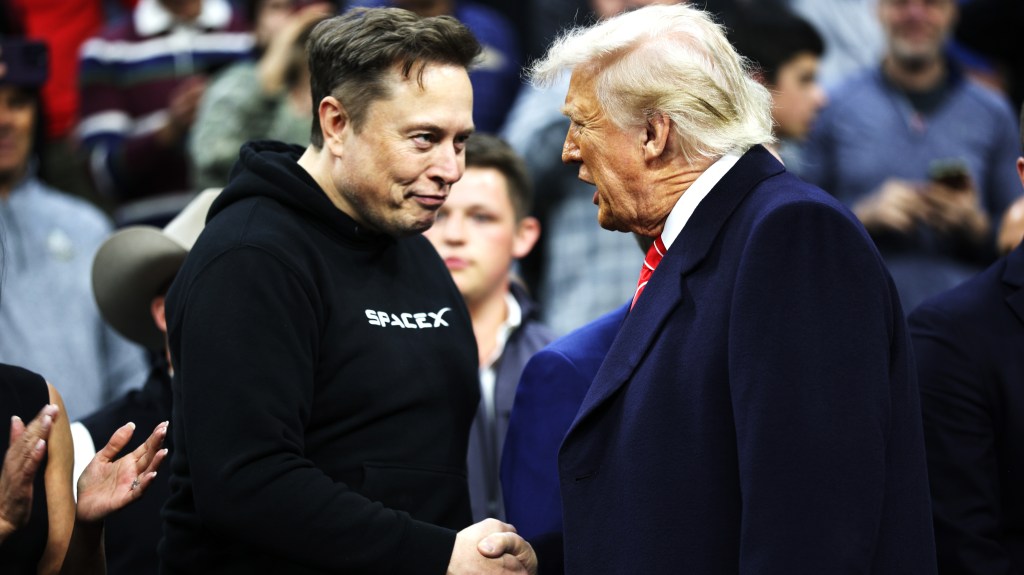John Oliver Compares Trump-Musk Rivalry to Reality TV Drama: Who Needs the Spotlight More?
In a recent segment of his critically acclaimed show, Last Week Tonight, John Oliver provided a humorous yet insightful analysis of the ongoing rivalry between former President Donald Trump and billionaire entrepreneur Elon Musk. Drawing parallels to the dynamics of reality television, Oliver suggested that both figures are not just competitors in the business and political arenas but are also players in a game where attention is the ultimate currency.
The Spotlight Addiction
Oliver opened the segment by highlighting how both Trump and Musk thrive on media attention. He remarked, “Without the spotlight, both of them would feel dead, like a plant without sunlight.” This metaphor encapsulates their dependence on public visibility and the drama that ensues when they interact.
Reality TV Dynamics
Oliver’s analysis likened the Trump-Musk rivalry to popular reality TV shows, where larger-than-life personalities vie for dominance. He noted that both figures have cultivated personas that keep them in the public eye, often resorting to outrageous statements and antics to capture headlines. The comedian quipped, “In this reality show, the ratings are high, but the stakes are even higher.”
Contentious Exchanges
The feud between Trump and Musk has been punctuated by a series of contentious exchanges, with each figure taking jabs at the other via social media and public appearances. Oliver highlighted a notable moment when Musk tweeted his admiration for Trump’s policies, only to later criticize him after the Capitol riots on January 6, 2021. This back-and-forth exemplifies the opportunistic nature of their relationship, as both seek to position themselves favorably in the eyes of their respective followers.
The Role of Social Media
Both Trump and Musk have harnessed the power of social media to amplify their messages, engage with their audiences, and create controversy. Oliver pointed out that Musk’s acquisition of Twitter has given him a platform that is not just a megaphone for his thoughts but a battleground for political discourse. He stated, “Musk understands the importance of a tweet; it can move markets, sway public opinion, and, most importantly, keep him relevant.”
Who Needs the Spotlight More?
As Oliver dissected the rivalry, he posed the question: who truly needs the spotlight more? He argued that while both men seem to thrive on attention, their motivations may differ significantly. Trump, he suggested, seeks validation and power, while Musk is driven by innovation and a desire to push boundaries. However, both figures appear to share a common need for public affirmation.
- Donald Trump: A former president and a figure who often uses media to reinforce his political brand and rally his base.
- Elon Musk: A tech visionary whose public persona is intertwined with his ventures, from Tesla to SpaceX, and who often uses controversy to fuel interest in his projects.
Media Coverage and Public Perception
Oliver also commented on how media coverage of the Trump-Musk rivalry reflects a broader trend in news consumption, where sensationalism often trumps substance. He remarked, “In a world where clicks are king, the more outrageous the behavior, the more coverage they receive. This creates a feedback loop that only serves to further inflate their egos.”
The Future of the Rivalry
As Trump gears up for a potential presidential run in 2024 and Musk continues to venture into new domains, the rivalry is far from over. Oliver speculated on what might come next, suggesting that we could see more dramatic confrontations that resemble scripted reality television storylines. He jokingly predicted, “If they continue this way, we might just see them in a celebrity boxing match, complete with commentary by the Kardashians.”
Conclusion
John Oliver’s segment on the Trump-Musk rivalry serves as a reminder of how contemporary politics and media have become intertwined with the theatrics of reality television. As both figures continue to vie for attention, audiences are left to wonder about the implications of their ongoing feud. Are we witnessing a genuine rivalry, or is it merely a spectacle designed to captivate and entertain? In the end, Oliver’s insights prompt us to consider the nature of fame and the lengths individuals will go to remain relevant in an ever-evolving media landscape.
See more The Buzz Live

